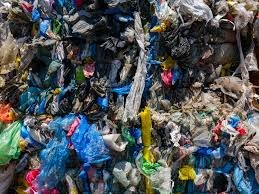Abu Dhabi is taking significant steps toward a sustainable future through circular economy initiatives. The concept of a circular economy focuses on reducing waste, reusing materials, and recycling products to extend their lifecycle. By adopting this approach, the city aims to minimize its environmental impact while promoting economic growth.
What is a Circular Economy?

A circular economy is a system that emphasizes keeping products, materials, and resources in use for as long as possible. Instead of the traditional “take, make, dispose” model, a circular economy encourages repairing, refurbishing, and recycling to reduce waste. This approach benefits both the environment and the economy by creating new business opportunities and conserving resources.
Abu Dhabi’s Commitment to Sustainability
Abu Dhabi has made sustainability a key priority through various programs and partnerships. Government agencies, private organizations, and environmental groups are working together to implement circular economy initiatives across the city. These efforts align with the UAE’s national agenda for a more sustainable and resilient future.


1. Waste Management and Recycling Projects
Abu Dhabi has established state-of-the-art recycling facilities and waste management centers to reduce landfill waste. The Tadweer Waste Management Center plays a crucial role in recycling materials such as plastic, paper, metal, and electronic waste. The center also converts organic waste into compost, which is used to enrich soil and support agriculture.
Additionally, the city promotes the use of smart bins that automatically sort recyclable materials. These innovations encourage residents and businesses to participate in recycling programs, making waste management more efficient.
2. Sustainable Construction and Material Reuse
Construction and demolition waste account for a significant portion of landfill waste. To combat this, Abu Dhabi has implemented regulations requiring the recycling and reuse of construction materials. Companies are encouraged to use recycled aggregates and reclaimed materials for new projects, reducing the demand for virgin resources.
Organizations like Masdar are leading sustainable construction efforts by incorporating energy-efficient designs and using eco-friendly materials in their developments. This supports the city’s vision of creating greener, low-carbon urban spaces.
3. Promoting a Circular Economy in Businesses
Local businesses are also embracing circular practices by reducing waste and maximizing resource efficiency. Many companies are adopting product take-back programs, where used products are returned, refurbished, and resold. This practice reduces the need for raw materials and lowers manufacturing costs.
Some businesses are shifting to zero-waste production models, ensuring that no materials go to waste during the manufacturing process. Additionally, initiatives like plastic-free packaging and reusable containers are gaining traction, encouraging consumers to make sustainable choices.
4. Education and Awareness Campaigns
Raising public awareness is key to the success of circular economy initiatives. Abu Dhabi regularly conducts workshops, educational programs, and community clean-up events to engage residents in sustainable practices. Schools and universities also integrate environmental education into their curriculum, empowering students to become sustainability advocates.
Campaigns like “Reduce, Reuse, Recycle” and “Say No to Plastic” have gained popularity, encouraging responsible consumption and waste management at the individual level.
5. Renewable Energy and Resource Efficiency
Abu Dhabi’s investments in renewable energy further support its circular economy goals. The Masdar City project is a prime example of sustainable urban planning, incorporating solar power, energy-efficient buildings, and advanced water recycling systems.
The city also utilizes waste-to-energy technologies, converting non-recyclable waste into electricity. This reduces landfill waste while generating clean energy, contributing to the region’s energy transition.
Challenges and the Road Ahead
While Abu Dhabi has made significant progress, challenges remain in achieving a fully circular economy. Effective waste management requires the cooperation of industries, consumers, and policymakers. Continued investment in recycling infrastructure and sustainable innovation will be essential to overcome these challenges.
Government regulations and incentives can further encourage businesses to adopt circular practices. Additionally, increasing public participation through awareness campaigns and accessible recycling facilities will play a critical role in the city’s journey toward sustainability.
Conclusion
Abu Dhabi’s commitment to circular economy initiatives highlights its dedication to environmental preservation and resource management. By reducing waste, promoting recycling, and supporting sustainable business practices, the city is paving the way for a greener future. With continued collaboration and innovation, Abu Dhabi serves as a model for other cities striving to achieve sustainability goals.
As residents, businesses, and policymakers work together, Abu Dhabi’s circular economy efforts will not only protect the environment but also create new economic opportunities, contributing to a healthier, more sustainable world.
Also read: How NGOs and Volunteers Are Making a Difference in the UAE













